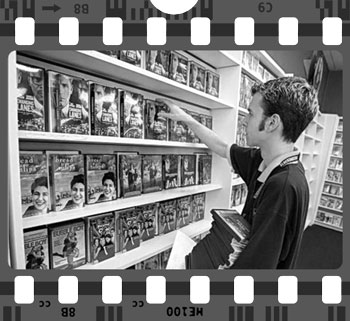Page 1 Page 2 Page 3 Page 4 Page 5 Page 6 Page 7 Page 8 Page 9

Arthur used filming as an excuse to ignore his actual homework – films were his life after all, Algebra was just busywork – and he and his crew stayed up all night. They worked hard, but sometimes, when they were finished, they kicked back with microwave popcorn and bad horror movies and goofed off. It felt good to be awake and doing something with friends while their entire town slept. Arthur still had the “b-roll” that he shot during those after hours parties; he’d probably shot more footage in his off time filming The Cure for Amnesia than he had shot of anything in the past few years.
He did miss filming – the sense that something was happening, the late nights, even the happy accidents. In his role as the robber in The Cure for Amnesia, Dean had hit Arthur too hard on one take, and instead of going down like he was supposed to, Arthur swung blindly at his friend, only to topple over the counter. Arthur had been angry at first, but upon reviewing the footage, he chose that take for the finished film. It was one of the biggest laughs whenever he screened it: once for a high-school talent showcase, once at a local student film festival, more than once at his high-school graduation party. Dean always laughed the hardest. Arthur hadn’t spoken to Dean in over a year. They hadn’t fallen out, just drifted apart. Like Arthur, Dean had left town to go to school in New York – he went to study pre-law at Columbia – but unlike Arthur, Dean had stayed away.
The Cure for Amnesia helped Arthur get into film school at NYU. That was all the film was intended to be: a portfolio piece, an “industry calling card” as Arthur had dubbed it, stealing a phrase from a book that he’d read about Quentin Tarantino. But it was now, depressingly, one of the most complete and accomplished films that he had worked on. Arthur came back to work for Constance after his first semester at NYU. Whenever someone asked him about it, he had said it just hadn’t been for him. Finally no one asked anymore.
A few days after he was supposed to go back to NYU for his spring semester – and didn’t – Arthur turned up a Video Deluxe and asked Constance about his old job, so quietly that she could barely hear him. She had reached up and hugged him – he was about a foot taller – and said that there was always a place for him at her store, if he needed it. She had thought she was telling the truth, Arthur thought. Or she hadn’t imagined that he would let it go this long. He was twenty-one now and would have been entering his senior year at NYU if things had gone as planned. Instead he was living in the town he’d grown up in (and always wanted to leave), living “temporarily” in his older brother’s basement, ruminating over his brief false start in the real world. People were probably thinking that he was a loser now. Maybe that was why Dean had started to forget to call Arthur when he was back in town. Because he thought Arthur was a go-nowhere guy with no aspirations outside of this town, or beyond the desk at Video Deluxe.
But that wasn’t true. Arthur still collected movie ideas. They came from conversations with patrons, from the patrons themselves, from what he wished had happened in all of the films that he watched, from what he wished would happen to him. Usually, Arthur imagined that the movies would be more like his life: people not getting what they wanted, the hero, just once falling down without getting back up. Or he imagined that his life was more like the movies. He wrote his ideas out in a notebook, saving them for a better day.
Arthur had loved movies from the start. The first time his family took him to the theater – it was Return of the Jedi – Arthur had started to cry but refused to leave. When the lights came up, he planted his feet firmly to the movie theater’s floor, thick with spilled soft drinks and dropped candy. They had to bribe him into leaving by promising him to come back the following week. “My heart’s still there,” he told Delia once. He would still defend Return of the Jedi against feisty customers who tried to convince him that it was a weak link in the Star Wars trilogy, a disappointing follow-up to the take-no-prisoners cool of The Empire Strikes Back. One young Star Wars fan who came in the store frequently and called Arthur “Video Store Guy” had given him an action figure of an Ewok, which was now proudly displayed on the cash register. When Arthur looked at it, he tried not to think about how the hell he grew up to be Video Store Guy. But he would reason that the store was good for him. It had kept him sane, and close to his passion, and talking to Delia…
Page 1 Page 2 Page 3 Page 4 Page 5 Page 6 Page 7 Page 8 Page 9

